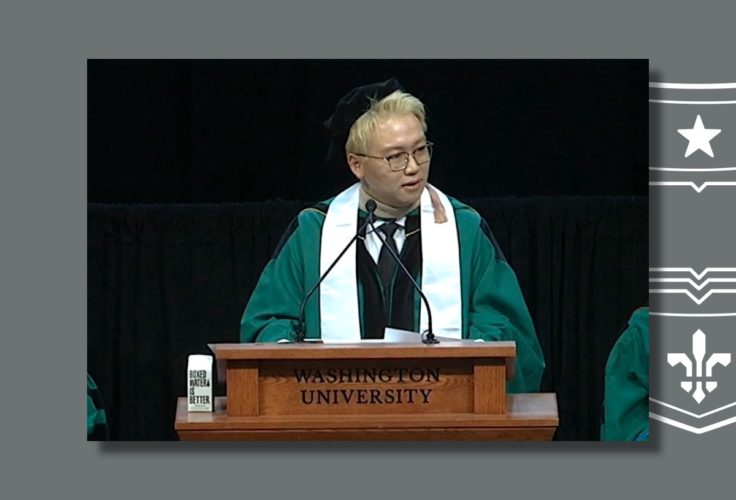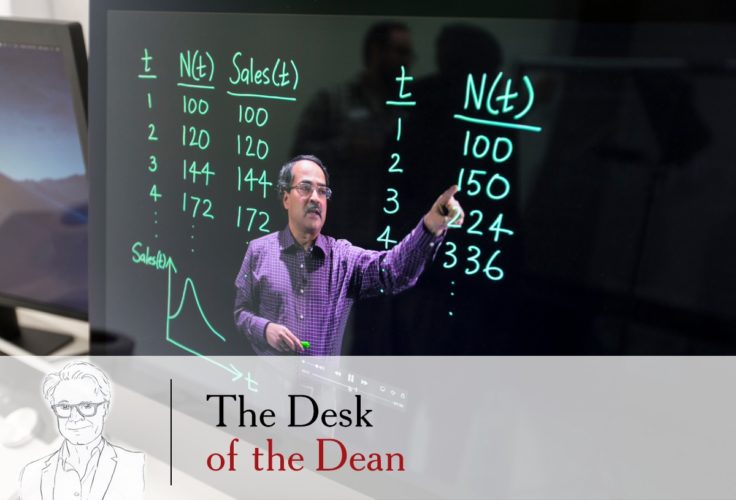Giving clients accurate, real-time visibility into the supply chain. Analyzing the cost-to-serve for a range of customers. Investigating new markets for growth opportunities, while accounting for existing resource constraints. Wrangling complex supply lines to optimize manufacturing and distribution.
These are some of the toughest challenges facing companies today. This fall, WashU Olin’s Boeing Center for Supply Chain Innovation (BCSCI) brings together the center’s brightest student minds to solve them for real-world clients.
It’s a benefit of corporate membership with the Boeing Center—the ability to assign a mini-consulting project to a student team, said Evan Dalton, digital marketing coordinator for the Boeing Center. The students are typically pursuing specialized master’s degrees in supply chain management and business analytics.
“Clients know they’re getting high-quality students who will do a good job for them,” Dalton said. “Member companies have attributed millions of dollars of savings after implementing recommendations and decision support tools resultant from these projects.”
For their part, the students not only get to work on meaty projects to sharpen their skills, they also connect with companies that may potentially be hiring once they graduate. “I’ve heard from some students that this program is the reason they decided to come here,” Dalton said.
A growing support team
BCSCI Director Panos Kouvelis carefully screens all client projects to ensure they fit with students’ skills and faculty expertise.
The student consultants are backed by experienced support teams provided by the Boeing Center: a faculty advisor, a project manager (usually Dalton or BCSCI Operations Manager Andy Sample), a PhD student who can lead the team through any unfamiliar skills required and an MBA student who serves as an “ambassador” to the company.
New this year: “We’re including technical advisors, students we hire from the engineering school who have a background in coding, database design and searching techniques, and software development,” Dalton said. The technical support allows student teams to further integrate company data into decision support tools that they build for clients.
He said Kouvelis and other expert faculty leading the student teams do a final vetting of the analyses and recommendations.
This year’s lineup of clients includes German-based pharma and biotech company Bayer, global agri-business firm Bunge, life science supplier MilliporeSigma, and St. Louis-based pharmacy giant Express Scripts. Previous clients have included Anheuser-Busch, Boeing, Belden, Emerson, Hunter Engineering, West Pharma and Edward Jones.
These firms support the Boeing Center as member institutions, contributing funding to the center’s operations. One of this year’s clients is the nonprofit Unity Foundation; Dalton said the center occasionally tackles projects for nonprofits at a reduced rate to provide challenging learning opportunities for students.
‘Win-win proposition’
At the end of the semester, the consulting teams present their solutions to the companies. Student teams from both semesters make presentations at an end-of-year symposium in the spring. They compete for most impactful project and a share of a $5,000 prize.
Dalton said the event draws many member clients, even those without a project in the running. “Seeing the types of projects we do for other companies helps them better utilize us in the future,” he said.
He said the school appreciates the opportunities the clients provide Boeing Center students. “We are hoping that the student skills and legwork, combined with faculty expertise, generate productive solutions for them. A win-win proposition across the board.”
Photo: Participants at the Boeing Center’s May 2023 Project of the Year Symposium. Five teams of students presented the results of their mini-consulting projects from the previous school year, competing for a share of a $5,000 award pool.







